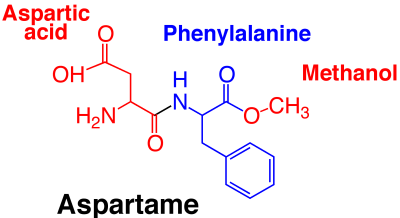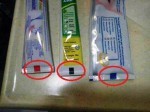
The NIH-AARP study of Americans, followed as a standard for years, found that frequent consumption of none sugar sweetened beverages, especially’ diet’ drinks, may increase depression risk among older adults. Whether soda, fruit-flavoured drinks or iced tea, those artificially sweetened drinks appeared to carry higher risk.
Various effects of artificial sweeteners, including neurological effects, have been suspected and written about for decades. For example, aspartame the chemical in Equal and Nutrasweet may modulate brain neurotransmitters such as dopamine and serotonin.
The controversy started in the 80s soon after aspartame was approved. Researchers at the Mass College of Pharmacy and MIT noted :
Given the very large number of Americans routinely exposed, if only 1 percent of the 100,000,000 Americans thought to consume aspartame ever exceed the sweetener’s acceptable daily intake and if only 1 percent of this group happen coincidentally to have an underlying disease that makes their brains vulnerable to the effects, then the number of people who might manifest adverse brain reactions attributable to aspartame could still be about 10,000, a number on the same order as the number of brain and nerve-related consumer complaints already registered with the FDA before they stopped accepting further reports on adverse reactions to the sweetener.
Those with a history of depression might be especially vulnerable. Researchers at Case Western designed a study to ascertain whether individuals with mood disorders are particularly vulnerable to adverse effects of aspartame. It was decided that it was unethical to continue to expose people to the stuff.
Normally when we study a drug or a food, the company donates the product to the researchers because they’re proud of the benefits or safety of their product. But the Nutrasweet company refused to even sell it to these researchers.
In a review of the direct and indirect cellular effects of aspartame on the brain, it was noted that there are reports of aspartame causing neurological and behavioural disturbances in sensitive individuals, such as headaches, insomnia and seizures.
The researchers go even further and propose that excessive aspartame ingestion might be involved in the development of certain mental disorders and also in compromised learning and emotional functioning. They conclude that; due to all the adverse effects caused by aspartame, it is suggested that serious further testing and research be undertaken to eliminate any and all controversies, to which someone wrote into the journal that there really is no controversy, aspartame really is potentially toxic stuff.
But what do they mean by excessive ingestion? The latest study on the neuro-behavioural effects of aspartame consumption put people on a high aspartame diet compared to a low aspartame diet. But even the high dose at 25 mg/kg was only half the adequate daily intake set by the FDA. The researchers concluded that; given that the higher intake level tested here was well below the maximum acceptable daily intake level [40mg in Europe, 50mg here] careful consideration is warranted when consuming food products that may affect neurobehavioral health.
Easier said than done, since it’s found in more than 6,000 foods, apparently making artificial sweeteners impossible to completely eradicate from daily exposure.
This reality will continue to exist because they elect to eat processed foods.
When diet coke was released sales of coke went up over 100% within months and expanded exponentially. Common sense tells you that aspartame is also very addictive.
The supermarkets are attacking your brains and you’re paying them to do this. A classic example of the twisted Legal term, ‘Tacit Agreement’ to your own destruction…
Source
Further Study
Mental Health, Transgenderism And Endocrine Disruptors
How to Beat Depression Without the Synthetic Drugs
Behavioural Medicine
Toothpaste as Medicine : lifeinthemix publishing
Have you ever noticed that there is a distinct colour at the bottom of each toothpaste pack ?

Do you know the meaning of the colours ?
Green : Natural.
Blue : Natural + Medicine.
Red : Natural + Chemical composition.
Black : Pure Chemical.